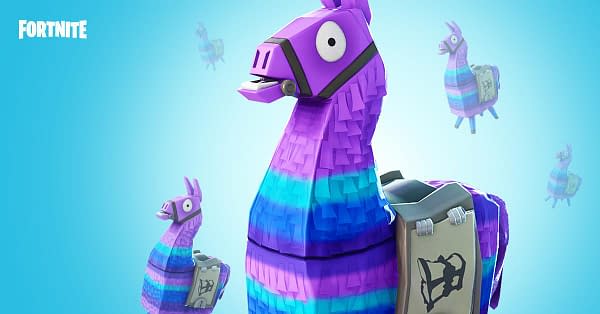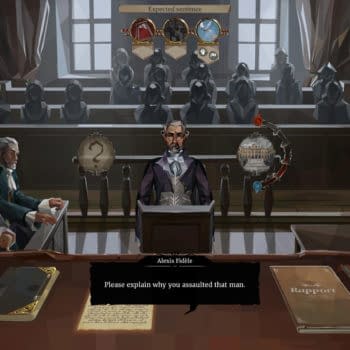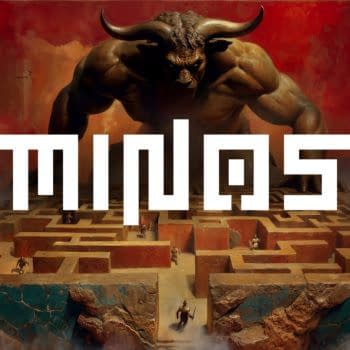Posted in: Games, Video Games | Tagged: epic games, Fortnite, gaming addiction, Mental Health, WHO, World Health Organization
The World Heath Organization Recognizes Gaming Addiction as a Mental Disorder

Gaming addiction has been given some major support now that the mental health disorder is being classified by the World Health Organization. Notably, the American Psychiatric Association declined to add the disorder to the Fifth edition of the Diagnostic and Statistical Manual of Mental Disorders (DSM V), though they have put it down as a subject requiring further study. The idea behind the WHO's decision is to classify gaming addiction as a specific disorder is for it to"be seen and treated as a serious medical disorder." Symptoms of the disorder include "compulsively playing video games."
Many of the opponents of classifying gaming addiction as a distinct disorder cite that evidence suggests it is merely another type of psychological addiction and not a distinct disorder in and of itself. After all, gaming addiction's possible causes mostly follow the same pattern as a gambling addiction or other impulse control disorders.
The WHO is the largest medical body to classify gaming addiction as a distinct disorder, and due to the popularity of Fortnite, the game has come under heavy fire.
From Comicbook.com:
As you can imagine, the news that "Gaming Disorder" is now recognized as a mental health condition is going to cause widespread concern and anxiety among parents, who no doubt watch their kids play video games for hours ever week. Are they addicted, or are they just a normal kid who loves video games? British Psychological Society spokeswoman Dr. Joan Harvey told Time that parents need to resist jumping to conclusions.
"People need to understand this doesn't mean every child who spends hours in their room playing games is an addict, otherwise medics are going to be flooded with requests for help," she said.
On the opposite end of the spectrum, though, we see young gamers who most certainly are addicted to video games. Just last week we published a story about a young girl who had to get taken for treatment after depriving herself of sleep, and losing focus in school, because she was sneaking in late-night, multi-hour Fortnite sessions. In fact, Fortnite has been a major part of the discussion this morning, with most media outlets singling out the game specifically.
As you can see, the hit game and this new medical classification are typically paired together in headlines and in quotes from doctors and experts. It's a joke to some of us, but for many families, it's a serious and scary thing.
While you might want to scoff at the inclusion of gaming addiction in the latest WHO manual, or perhaps take issue with the idea that it needs its own classification, the idea behind the WHO's move makes perfect sense. After all, for those who do experience a major disruption of their everyday lives due to a preoccupation with video games, there aren't many treatment options. Because, up until now, the disorder was not recognized by any major medical or psychological body, therapy for it was piecemeal.
And the WHO is an international body, which means it will help gamers across the world.
Hopefully the official recognition will offer more avenues for affected gamers to seek help and receive treatment.




![[REVIEW] "Gang Beasts" is Zany Party Madness](https://mlpnk72yciwc.i.optimole.com/cqhiHLc.IIZS~2ef73/w:350/h:350/q:75/rt:fill/g:ce/https://bleedingcool.com/wp-content/uploads/2019/09/gang-beasts-7-350x350.jpg)




![[REVIEW] "Divinity: Original Sin II" Definitive Edition is Almost Perfect](https://mlpnk72yciwc.i.optimole.com/cqhiHLc.IIZS~2ef73/w:350/h:350/q:75/rt:fill/g:ce/https://bleedingcool.com/wp-content/uploads/2018/08/Divinity-Original-Sin-2-Definitive-Edition-art-350x350.jpg)





